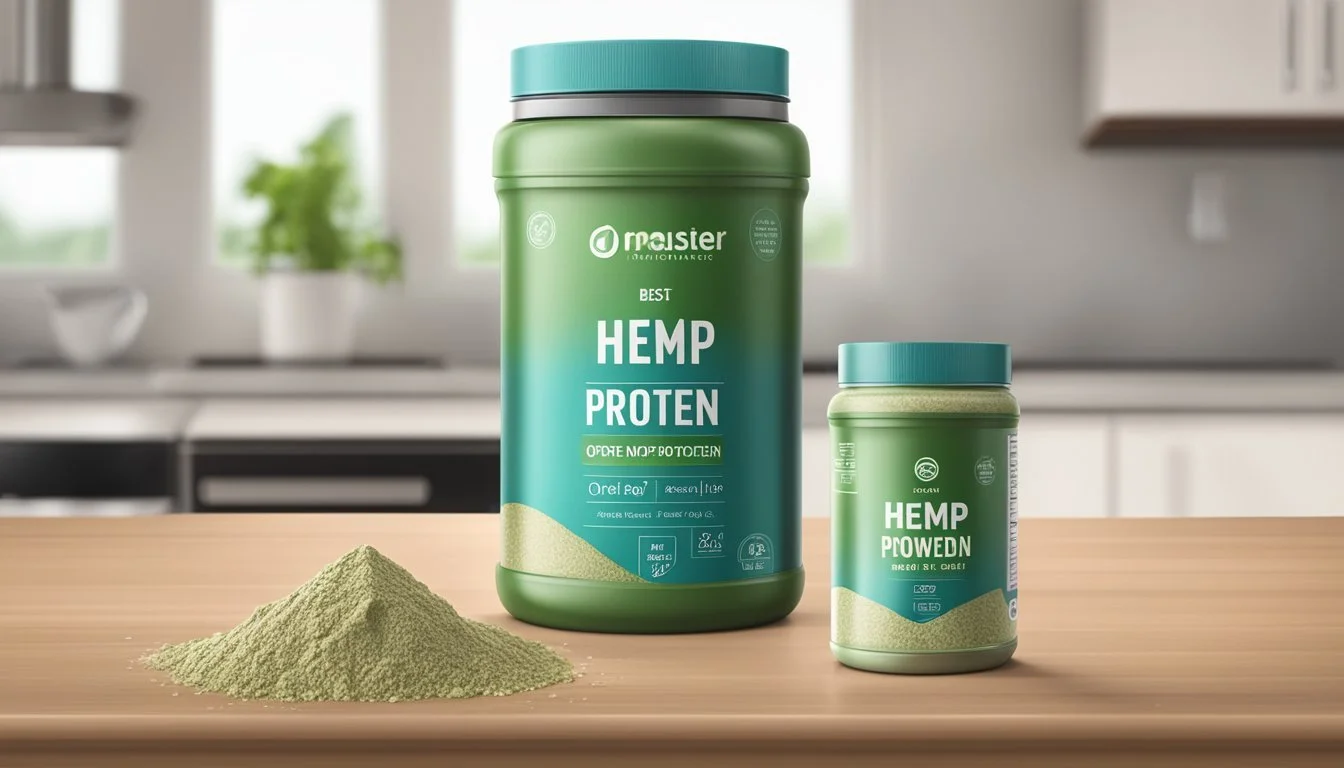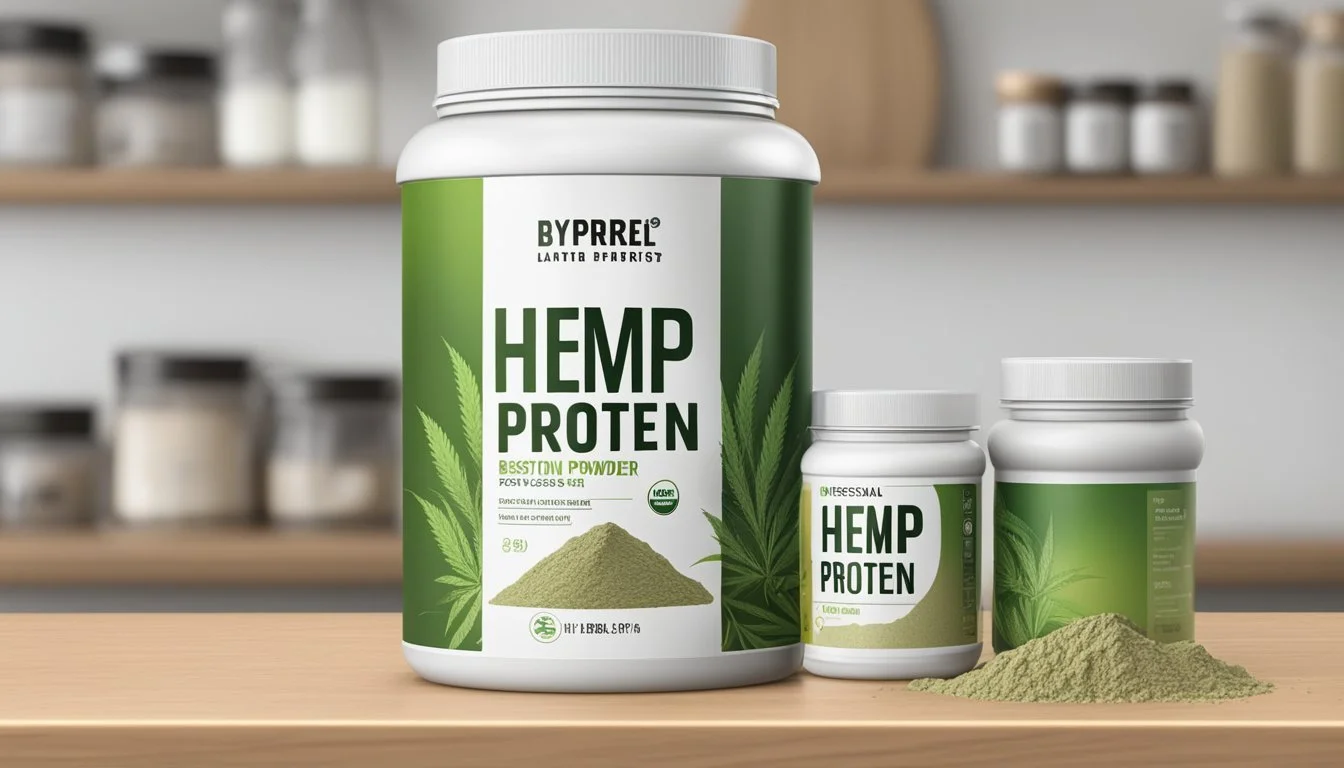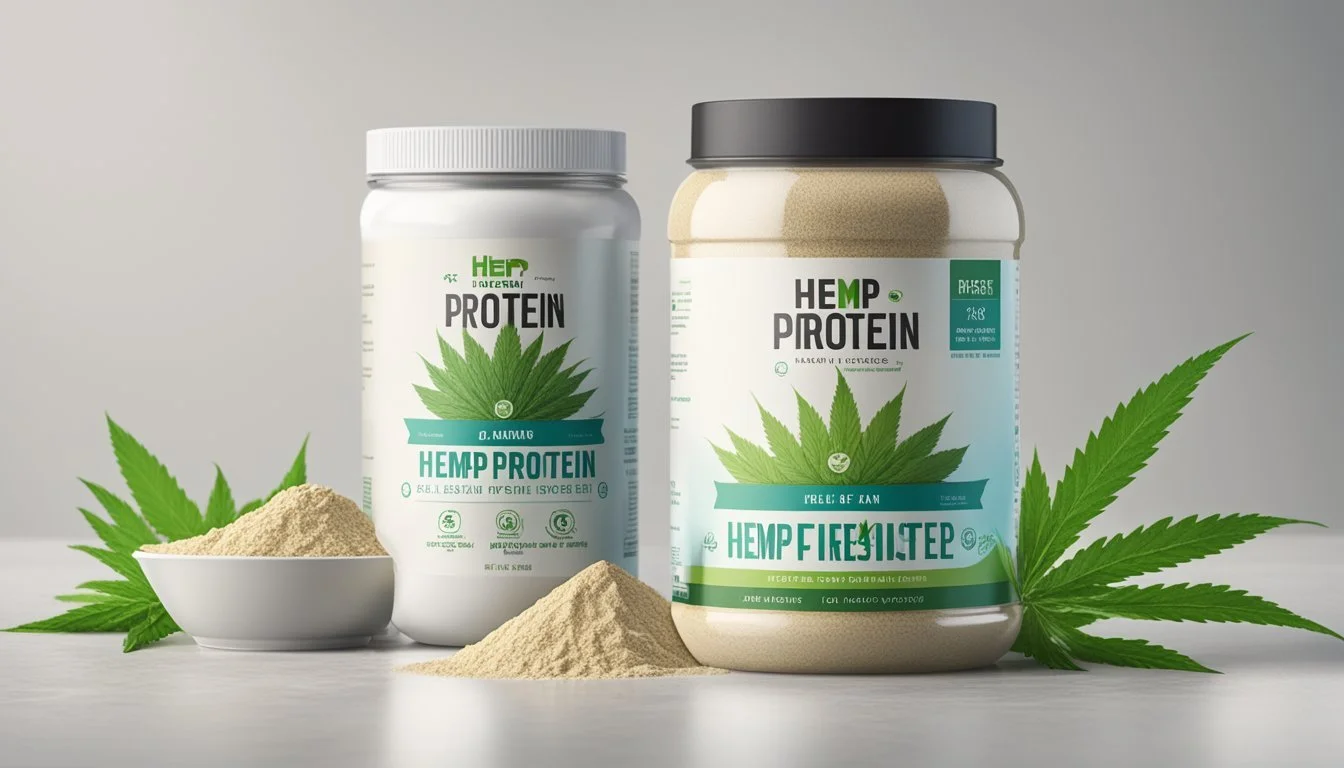Does Hemp Protein Powder Go Bad?
Understanding Shelf Life and Storage
Hemp protein powder is a supplement that is esteemed for its nutritional value, especially within vegan and vegetarian circles. As a plant-based source of protein, it offers a unique blend of essential amino acids, fiber, and other beneficial nutrients, making it a worthwhile addition to a diet. Like most protein powders, hemp protein is processed and sold in powdered form, which can raise questions about its shelf life and when or if it goes bad.
The stability and longevity of hemp protein powder largely depend on its storage conditions. To maintain its quality and nutritional integrity, it should be stored in a cool, dry place, away from moisture and direct sunlight. While the protein powder comes with a best-before date, this date often reflects peak freshness rather than an exact point at which the product will spoil.
Consumers should be aware that expired hemp protein powder may gradually lose some of its nutritional value and can potentially lead to digestive discomfort if consumed after a significant amount of time past the expiration date. Moreover, improper storage or a package compromise could lead to the presence of harmful microorganisms such as bacteria or molds, which can result in foodborne illnesses. Hence, while hemp protein powder does not spoil as quickly as some animal-derived protein powders, attention to expiration dates and proper storage is crucial.
What Is Hemp Protein Powder?
Hemp protein powder is a plant-based supplement high in essential nutrients, boasting a rich amino acid profile and harboring benefits for muscle recovery and heart health.
Composition and Nutritional Profile
Hemp protein powder is derived from the seeds of the hemp plant and is known for its high nutritional value. It contains all nine essential amino acids, making it a complete protein, which is a significant feature for a plant-based protein source. A notable aspect of hemp protein is its content of omega-3 and omega-6 fatty acids in a favorable ratio, which contributes to cardiovascular health. It also includes a good amount of fiber, as well as minerals such as iron and magnesium.
Typical nutritional values per 30g serving include:
Protein: 15g
Fiber: Roughly 8g
Fatty acids: Omega-3 and Omega-6
Minerals: Iron, Magnesium
Comparison With Other Protein Powders
Hemp protein is often compared to other popular protein powders such as whey, soy, pea, and rice protein. Unlike whey, which is derived from milk and contains lactose, hemp protein is vegan and hypoallergenic. When compared to soy, pea, and rice proteins, hemp has a distinct advantage due to its fiber content and fatty acid profile. However, it often contains less protein by weight compared to these alternatives.
Protein Powder Protein Content Fiber Content Hypoallergenic Complete Protein Hemp Moderate High Yes Yes Whey High Low No Yes Pea High Moderate Yes No Rice Moderate Moderate Yes No Soy High Moderate No Yes
Benefits for Health and Diet
The consumption of hemp protein powder supports health and diet in various ways. For individuals following a vegan or plant-based diet, it provides a valuable source of protein critical for muscle recovery. Its rich amino acid profile aids in maintaining and repairing bodily tissues. The fiber content in hemp protein can help regulate blood sugar levels and improve digestive health. Additionally, the presence of essential fatty acids is conducive to heart health.
Hemp protein is not just beneficial for people with specific dietary preferences, but for anyone looking to incorporate a wholesome source of protein into their diet.
Shelf Life and Degradation
Hemp protein powder, like any food product, has a specific shelf life after which its quality may deteriorate. Understanding the factors influencing shelf life, recognizing signs of spoilage, and being aware of safety and consumption risks associated with degradation are crucial for consumers to maintain its freshness and ensure safe consumption.
Factors Influencing Shelf Life
The shelf life of hemp protein powder can range from 1-2 years, contingent on several factors. Crucially, storage conditions are paramount—keeping the powder in a cool, dry place away from direct light and air exposure can significantly extend its usability. Moisture and temperature fluctuations are known to accelerate degradation, so proper sealing is imperative to maintain longevity.
Temperature: Store below 25°C (77°F) to prevent heat-induced spoilage.
Moisture: Keep in a dry environment; avoid areas prone to humidity.
Light: Store in opaque containers as light can degrade nutritional quality.
Air: Use air-tight containers to minimize oxidation.
Signs of Spoilage
Detecting spoilage involves examining the smell, taste, and visual appearance of hemp protein powder. A rancid odor, deviation in taste, or presence of clumping and discoloration typically indicates that the product is no longer at its peak freshness. These signs are clear indicators that the powder should be discarded to avoid health risks.
Smell: A sour or rancid odor is a likely sign of spoilage.
Taste: Any change from the original taste may signal spoilage.
Visual: Clumps, mold, or color changes denote deterioration.
Safety and Consumption Risks
Using spoiled hemp protein powder carries risks due to potential contamination with harmful microorganisms such as bacteria and mold. Consumption of such degraded products can lead to foodborne illnesses. Although using a product slightly beyond the expiration date may not pose immediate harm, the risk of health issues increases dramatically as time goes on. Thus, it is advised to adhere to the expiration date and observe for spoilage signs to ensure safety.
Microorganisms: Presence can cause foodborne illnesses.
Consumption Risks: Ingesting spoiled powder can lead to gastrointestinal distress.
Storing Hemp Protein Powder
The longevity and freshness of hemp protein powder are directly influenced by the conditions in which it is stored. Proper storage not only extends shelf life but also maintains the quality of the powder.
Optimal Storage Conditions
To retain the quality of hemp protein powder, temperature and moisture are two critical factors to manage. Storage guidelines recommend keeping hemp protein powder in a cool, dry place. A pantry is often ideal, as it provides a consistent environment, free from fluctuations in temperature and humidity. Keeping the protein powder away from heat sources and direct sunlight will protect it from oxidation and degradation.
Temperature: Aim to store the powder at room temperature, typically around 68°F (20°C).
Moisture: Avoid areas prone to dampness. Moisture can encourage mold growth and spoilage.
Effect of Packaging on Longevity
Packaging plays a pivotal role in preserving hemp protein powder. Once opened, transferring the powder into an airtight container is crucial to prevent exposure to air and light, both of which can accelerate degradation. Using containers that reduce light penetration will further protect against loss of freshness.
Use airtight containers: Sealable bags or containers with tight-fitting lids work best.
Consider dark-colored containers: These can minimize light exposure, which helps to maintain the powder's integrity.
By following these guidelines, the shelf life of hemp protein powder can be maximized, ensuring it remains fresh and effective for consumption until the end of its intended lifespan.
Usage and Handling
Proper usage and handling of hemp protein powder ensure that consumers enjoy its quality taste and texture, while also receiving optimal nutritional benefits. This segment explores the best practices for incorporating hemp protein into diets, maintaining its shelf life, and understanding the care with opened products.
Preparing Protein Shakes and Recipes
When preparing protein shakes or adding hemp protein powder to recipes, one should aim for a smooth texture without compromising the powder's inherent nutty taste. Utensils used should be clean to prevent contamination. Here are the steps to achieve a desirable consistency and flavor:
Measure the desired amount of hemp protein powder.
Use a blender to ensure thorough mixing, which can improve both taste and texture.
If a shake is too thick, add a liquid such as water or plant-based milk until the preferred consistency is reached.
Additionally, hemp protein powder can be incorporated into various recipes such as baked goods, smoothie bowls, and energy bars. However, excessive heat can lead to degradation of some nutrients, so it is advisable to use hemp protein in no-bake recipes or add it after cooking.
Maintaining Potency and Effectiveness
To maintain the potency and effectiveness of hemp protein powder as a supplement:
Store in a cool, dry place away from direct sunlight to prevent the degradation of protein content and potency.
Keep the container tightly sealed when not in use to maintain freshness and prevent oxidation.
Use a dry spoon or scoop to measure out the powder, as any moisture can hasten spoilage.
It is also essential to observe the product's expiration date to ensure that the supplement remains effective for protein intake. The fat content in hemp protein powder could turn rancid over time, affecting both taste and nutritional value.
Important Considerations with Opened Containers
Once a container of hemp protein powder is opened:
Minimize air exposure by sealing the container after each use.
Opened products are more susceptible to contamination. Thus, powder should be used within the recommended time frame, typically a few months post-opening.
Keep an eye on changes in texture, taste, and smell. If the powder develops an off odor, changes color, or there's clumping beyond what can be easily broken apart, it may signal spoilage.
For individuals grinding hemp seeds to make fresh hemp protein powder at home, immediate storage in an airtight container is crucial. Additives such as preservatives are not present in freshly ground powders, making them more vulnerable to spoilage.
Choosing High-Quality Hemp Protein
When selecting hemp protein powder, consumers should be mindful of the protein content, safety, nutritional value, and taste. The product's processing, additives, and the reputation of the company behind it also play crucial roles in determining quality.
Assessing Product Quality
The first step in selecting a high-quality hemp protein powder is to examine the protein content. It is essential to choose a product containing a significant amount of protein per serving, typically around 15 grams. The source of hemp should be scrutinized for its safety and nutritional value; organic sources are often preferred due to the absence of pesticides.
Furthermore, the ingredients list should be reviewed to ensure there are no unnecessary additives. Hemp protein that preserves most of its natural fiber content is advantageous, as fiber aids digestion. Quality can also be determined through taste tests, as a good hemp protein should have a pleasant, nutty flavor without undue bitterness.
Processing methods are indicative of quality, with cold-processed powder often retaining more nutrients than those processed using high temperatures. The level of processing also impacts the powder’s digestibility and solubility in liquids.
Differentiating Between Brands and Products
Investigating different companies offers insights into brand reputation and product reliability. Reviews and third-party testing can provide confirmation of product purity and adherence to safety standards. Cost may also inform the decision, but it's vital to balance price against quality. Sometimes a higher cost is a result of better quality ingredients or manufacturing practices.
Purchasing bulk hemp protein can be more cost-effective; however, consumers should still ensure the product meets quality benchmarks. Some brands may specialize in hemp protein, with a focus on delivering a superior product through extensive research and expertise in the field. These nuances between brands and products guide consumers toward the best choice for their individual needs.
Environmental and Ethical Considerations
When evaluating the implications of hemp protein powder, it's essential to consider the environmental footprint of its production and its role in fostering sustainable diet choices.
Hemp Cultivation and Sustainability
Hemp cultivation is widely regarded as a sustainable agricultural practice due to its minimal environmental impact. Hemp plants have a rapid growth cycle, require less water than traditional crops, and can grow in a variety of climates. They are also known to replenish the soil with nutrients, making it fertile for future crops. Unlike its cousin marijuana, hemp contains negligible amounts of THC, the psychoactive compound, ensuring that it's grown for nutritional and industrial purposes without the ethical and legal concerns associated with marijuana cultivation.
Furthermore, as a plant-based resource, hemp contributes to a sustainable agricultural sector by offering an alternative to protein sources that have higher carbon footprints. The use of hemp protein supports a vegan or plant-based diet, which many consider to be ecologically preferable due to lower associated greenhouse gas emissions.
Impact on Plant-Based Diet Adoption
The rise of hemp as a protein source is a testament to its potential to play a significant role in the global shift towards plant-based diets. Opting for hemp protein over animal-derived supplements can be a sustainable dietary choice. It fits well within a vegan paradigm, serving as an alternative replacement for whey protein that necessitates animal products.
The adoption of hemp protein aligns with ethical dietary decisions that aim to reduce animal suffering and environmental strain. As a complete protein, hemp contributes all nine essential amino acids, which are crucial for human nutrition, muscle building, and repair. This nutritional profile positions hemp protein as not only an environmentally friendly option but also a nutritionally comparable choice to more traditional protein supplements.
Potential Side Effects and Interactions
Hemp protein powder, as a plant-based supplement, generally has a good safety profile. However, consumers should be aware of possible side effects and interactions.
Allergies: Individuals with a sensitivity to hemp should avoid hemp protein as it may trigger allergic reactions, such as swelling, skin rashes, or more severe symptoms like anaphylactic shock.
Gastrointestinal Issues: Rich in fiber, hemp protein powder promotes digestive health but can also lead to bloating or gas when consumed in large amounts, especially for those not accustomed to high-fiber diets.
Interactions: Currently, there is limited information on the interactions of hemp protein with medications. As with any supplement, it should be used with caution when taking prescription drugs, and discussing with a healthcare provider is advised.
Side Effects:
Gastrointestinal discomfort
Bloating
Gas
While these side effects are relatively minor and not commonly experienced, they can occur. To minimize them, users are advised to start with a smaller dose of hemp protein and gradually increase it to an optimal level. This allows the body to adjust to the increased fiber intake. Users should also maintain adequate hydration when consuming fiber-rich products like hemp protein powder.
There are no known severe interactions with hemp protein powder, but it is always prudent to speak with a healthcare professional prior to starting any new supplement regimen. They hold the most expertise and insight into how hemp protein might affect an individual's specific health profile and any medications they are currently taking.








